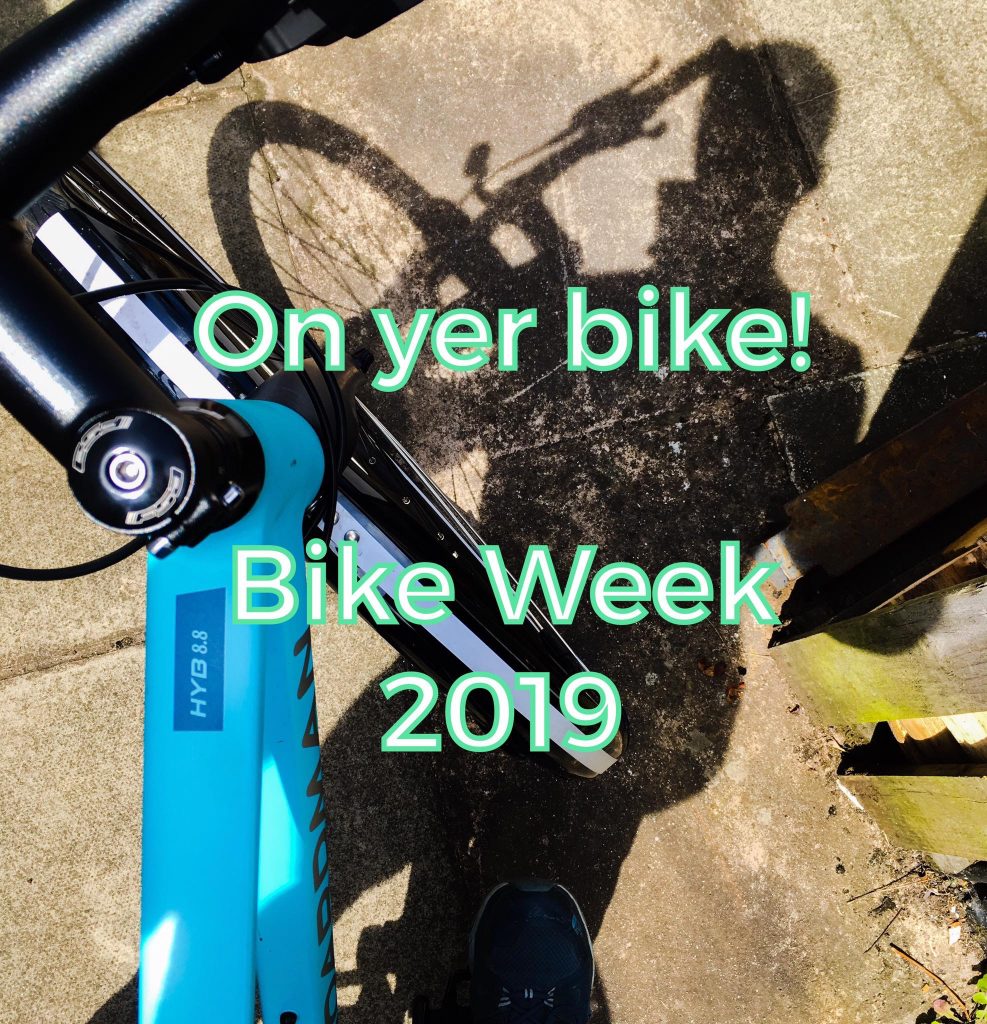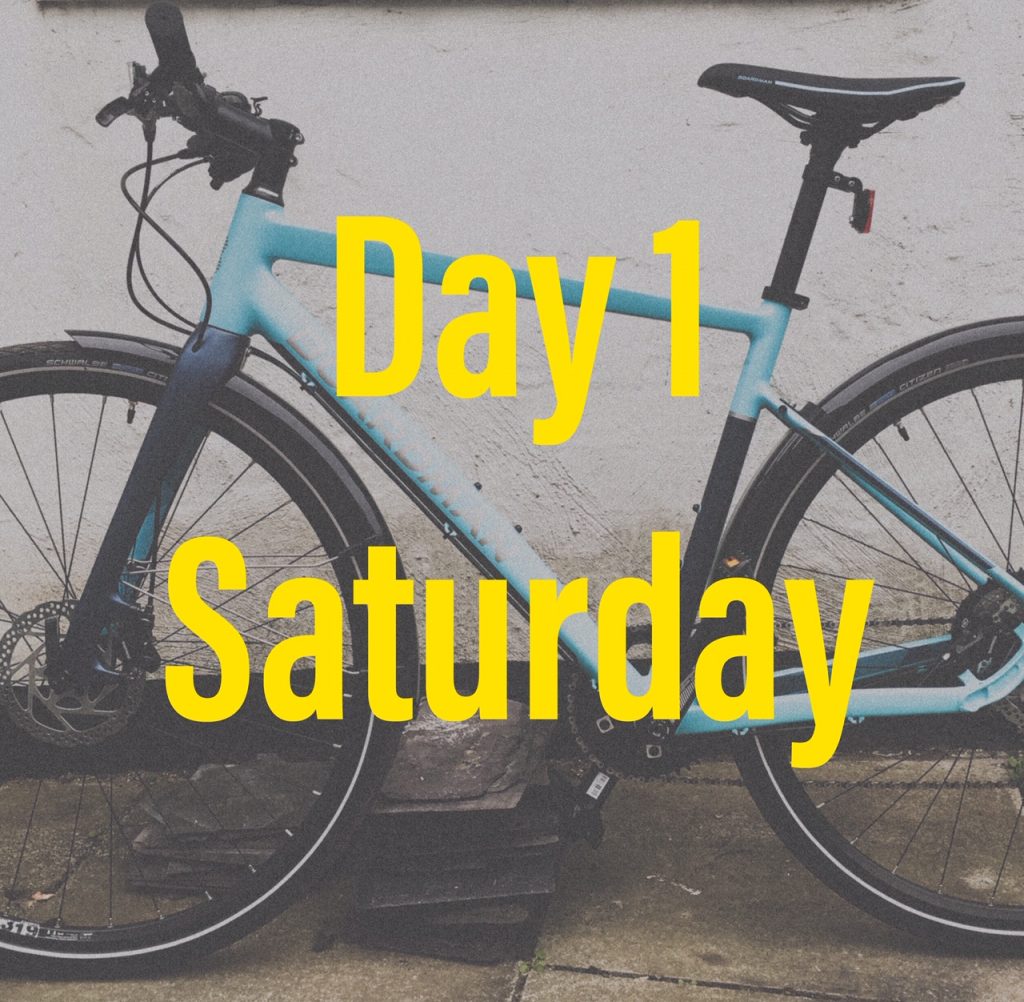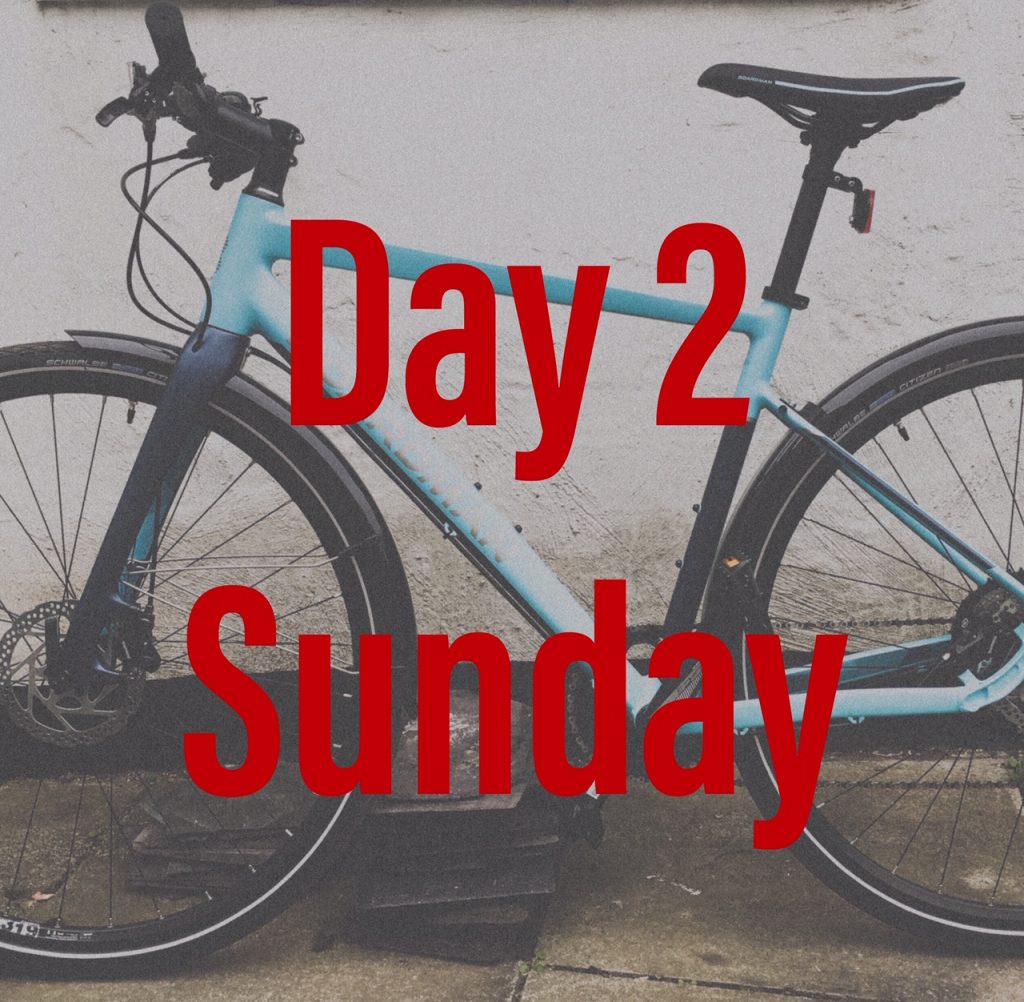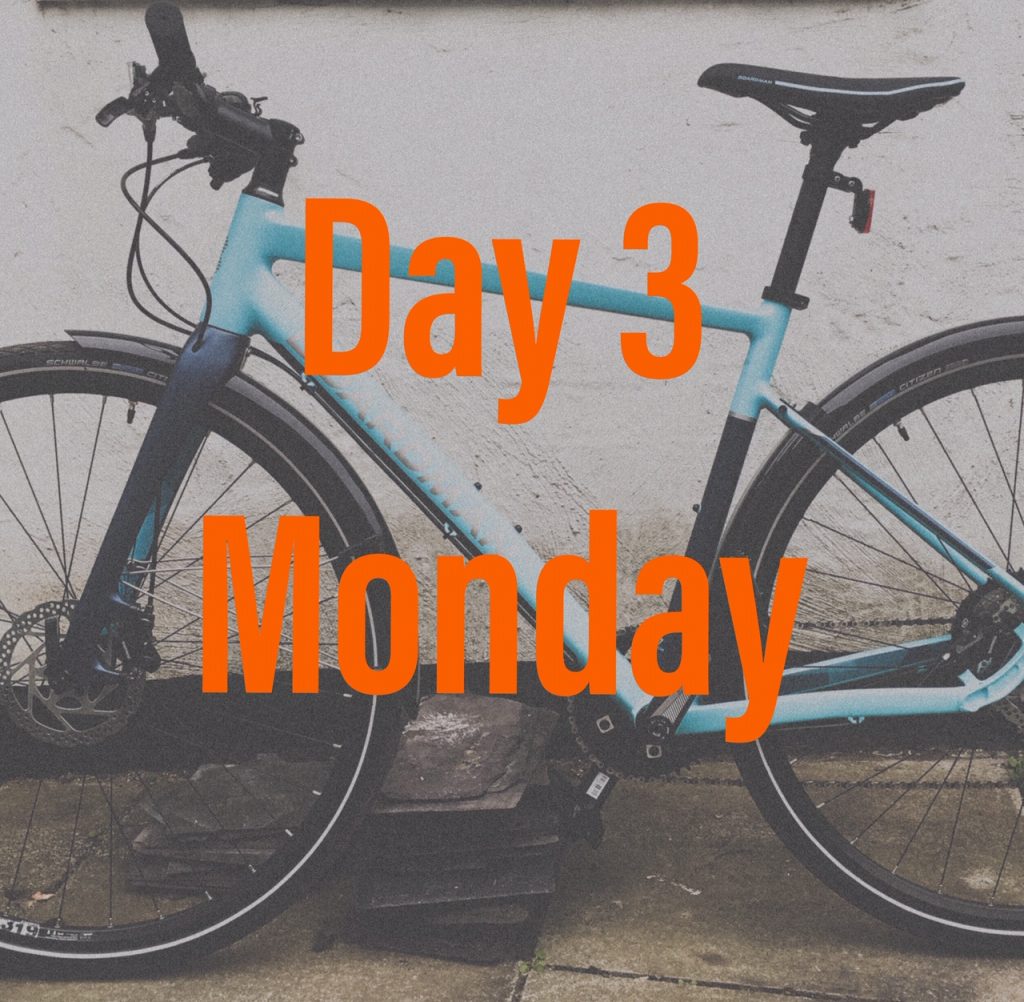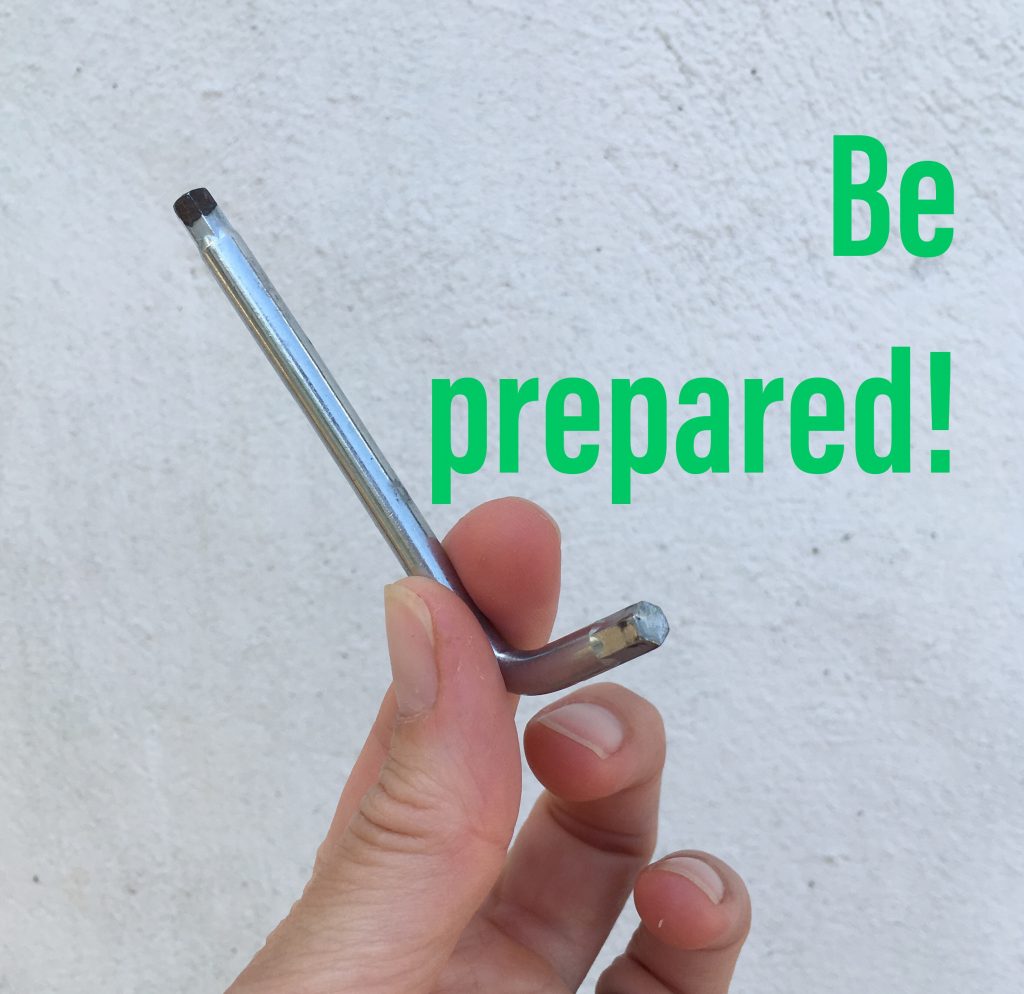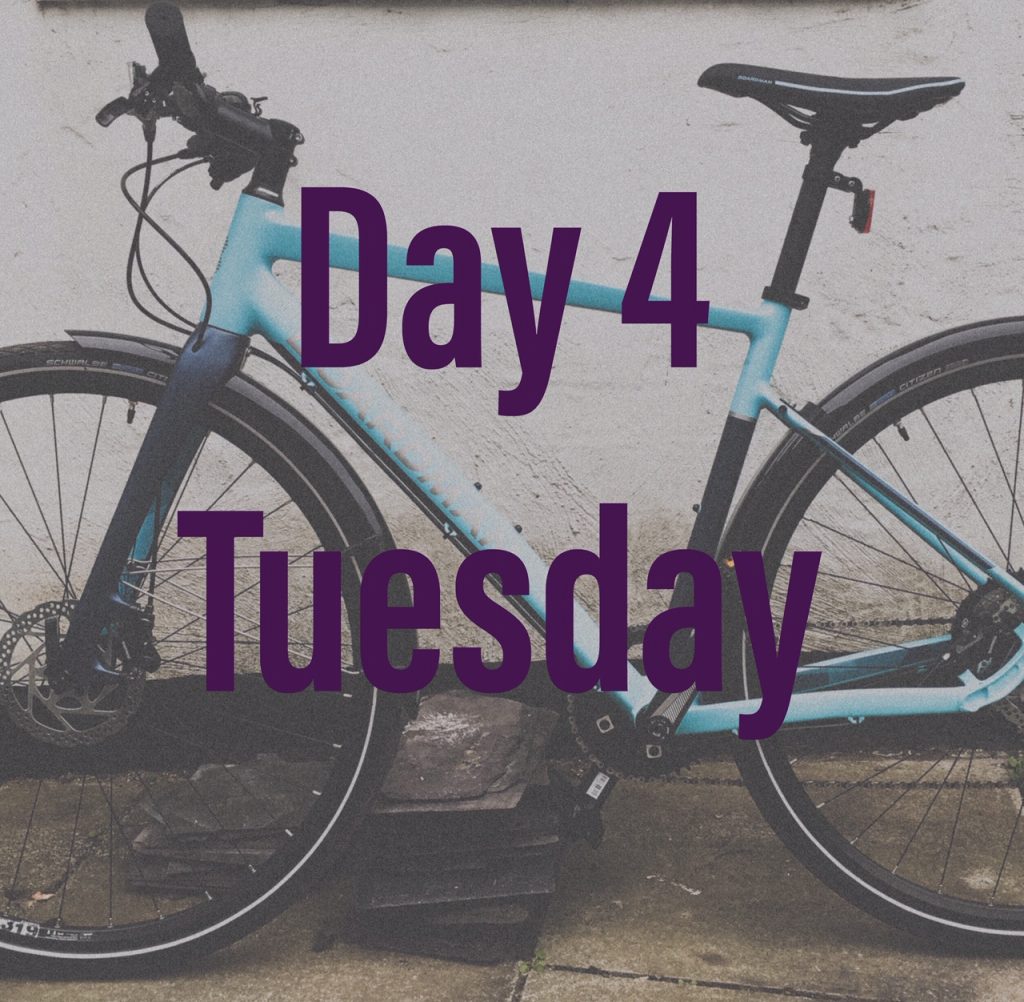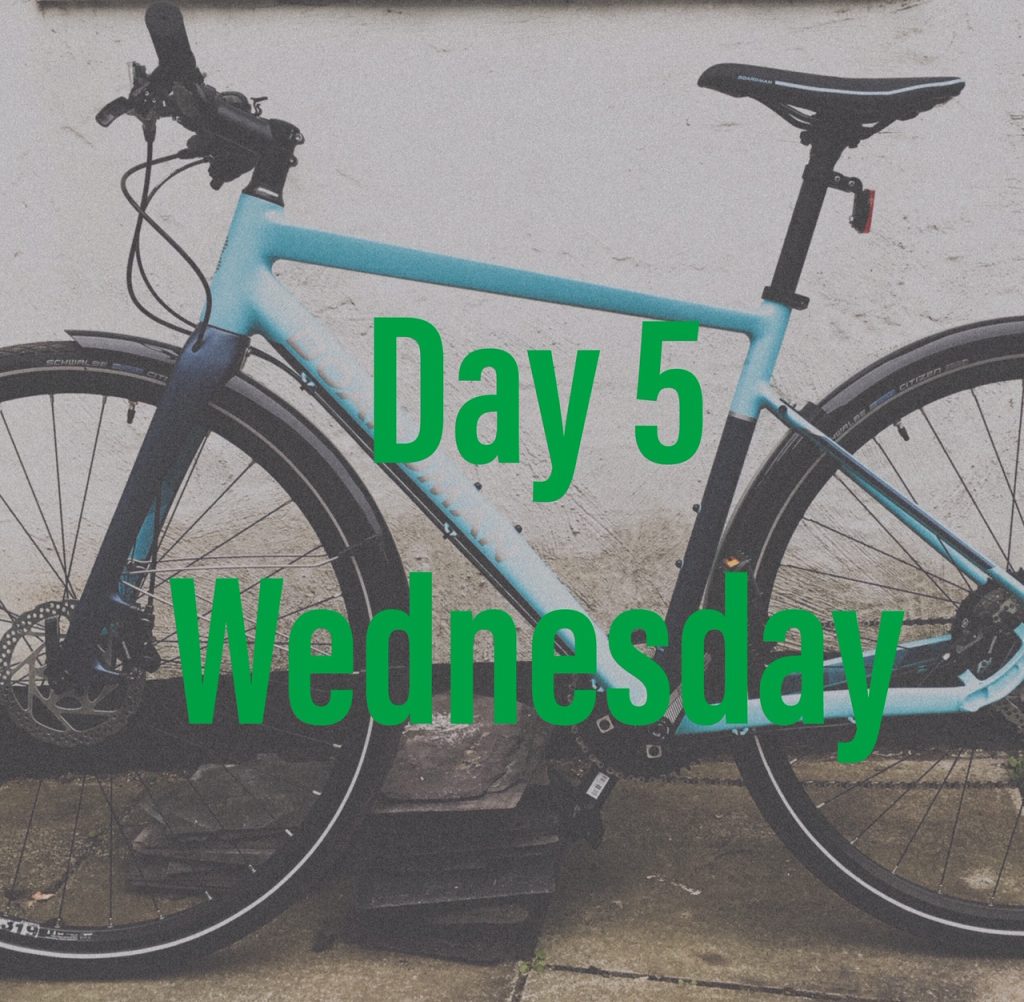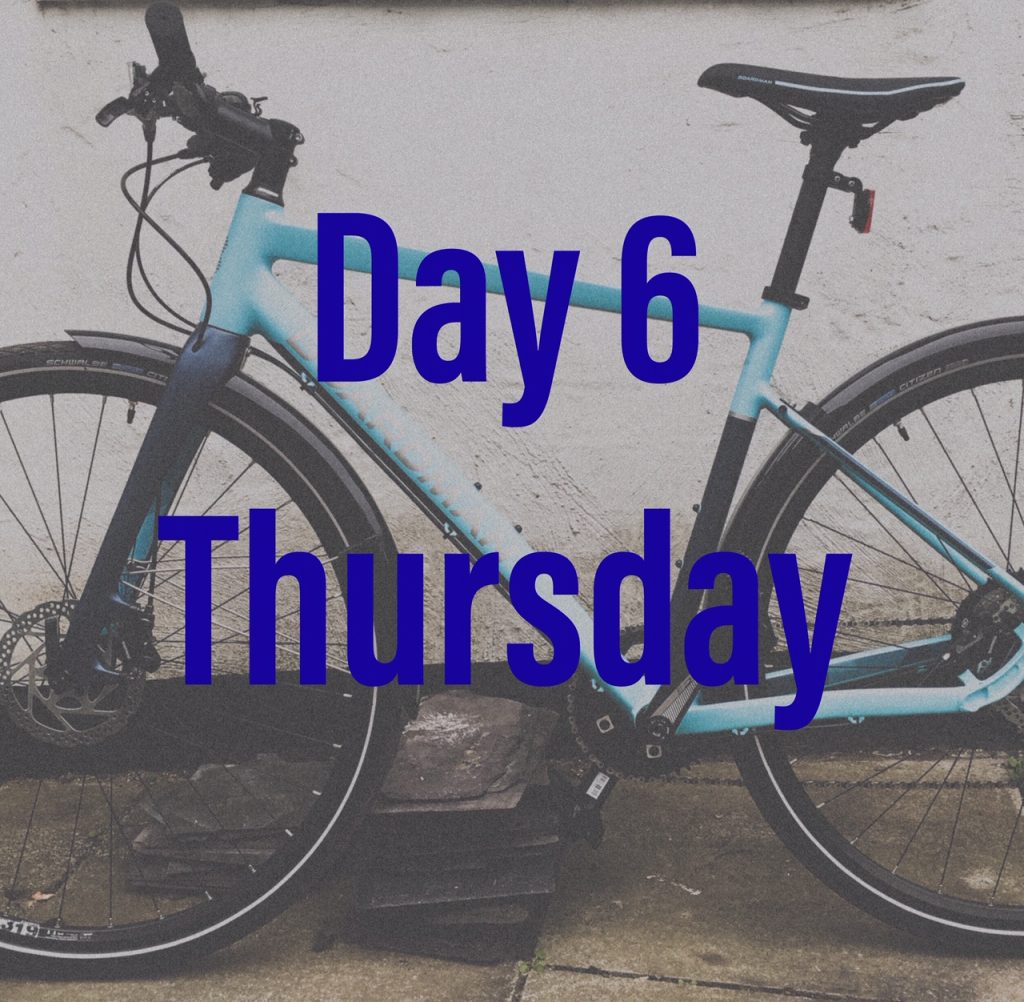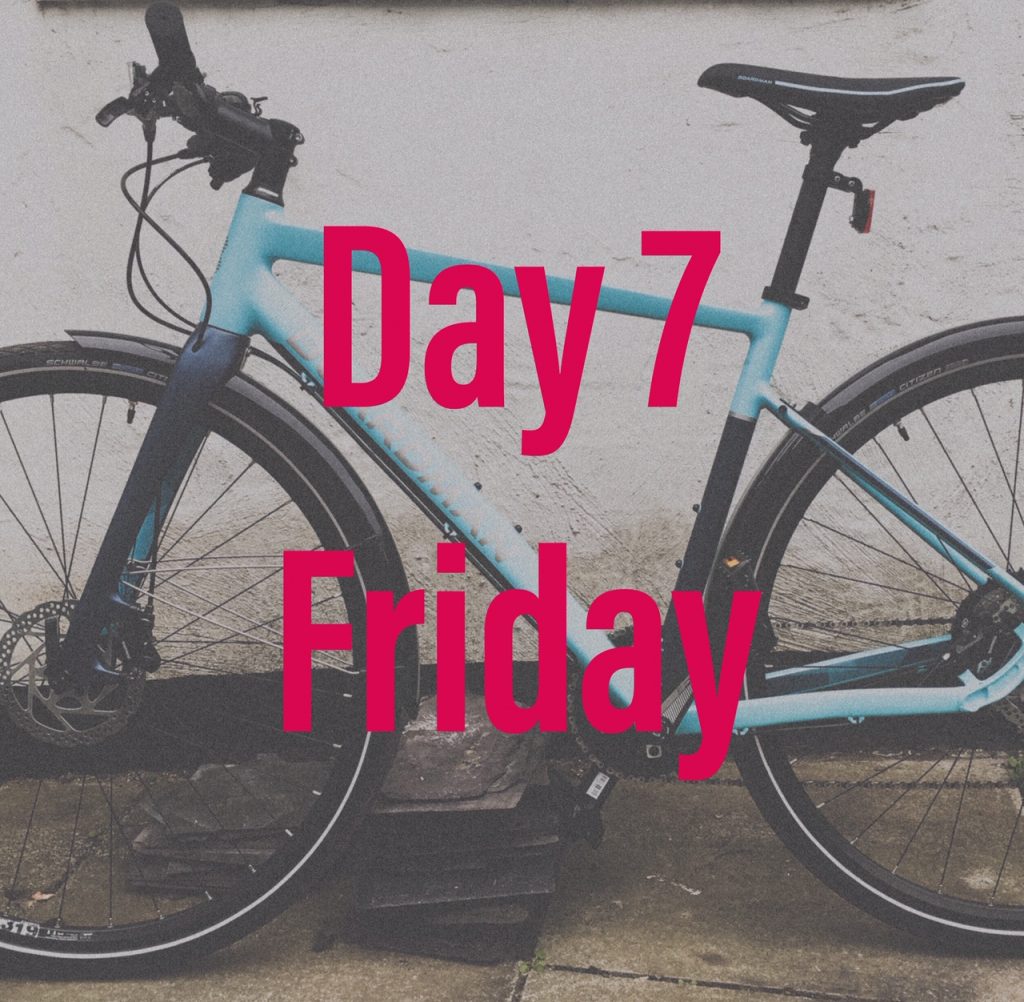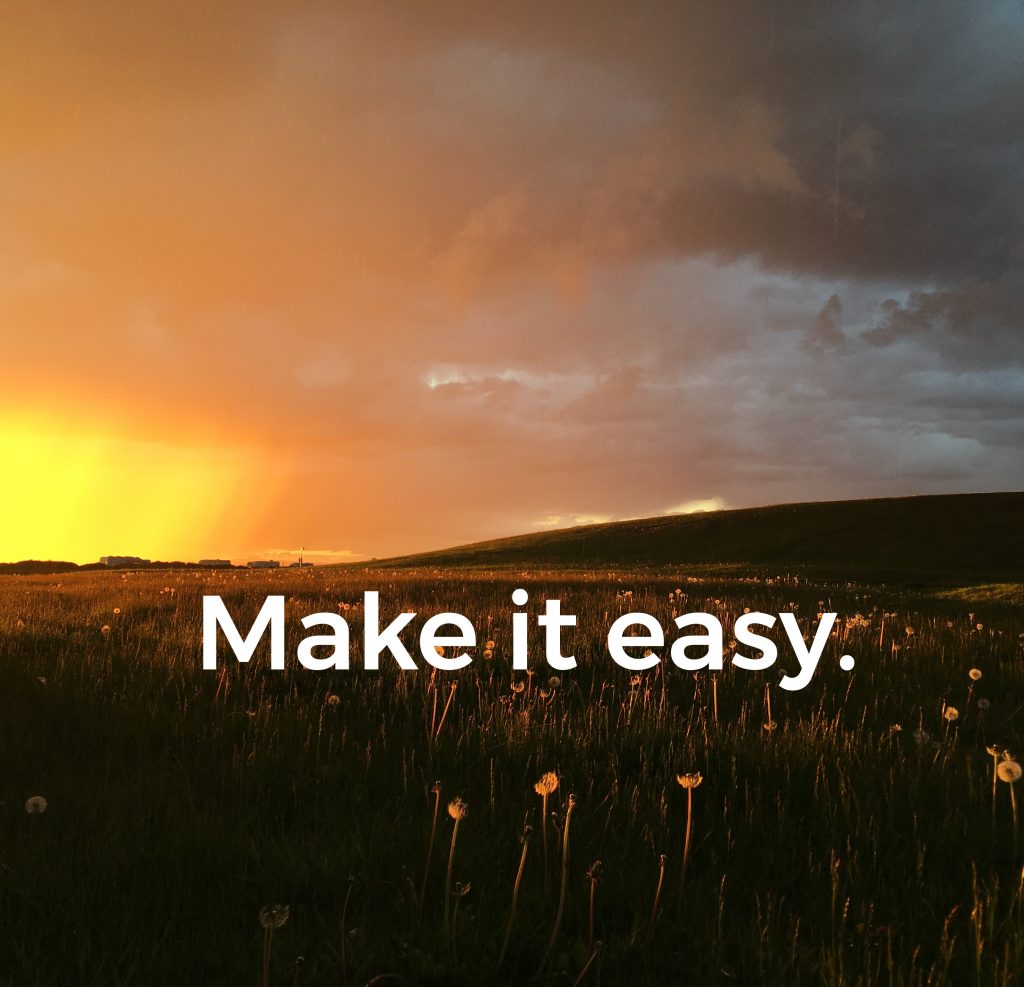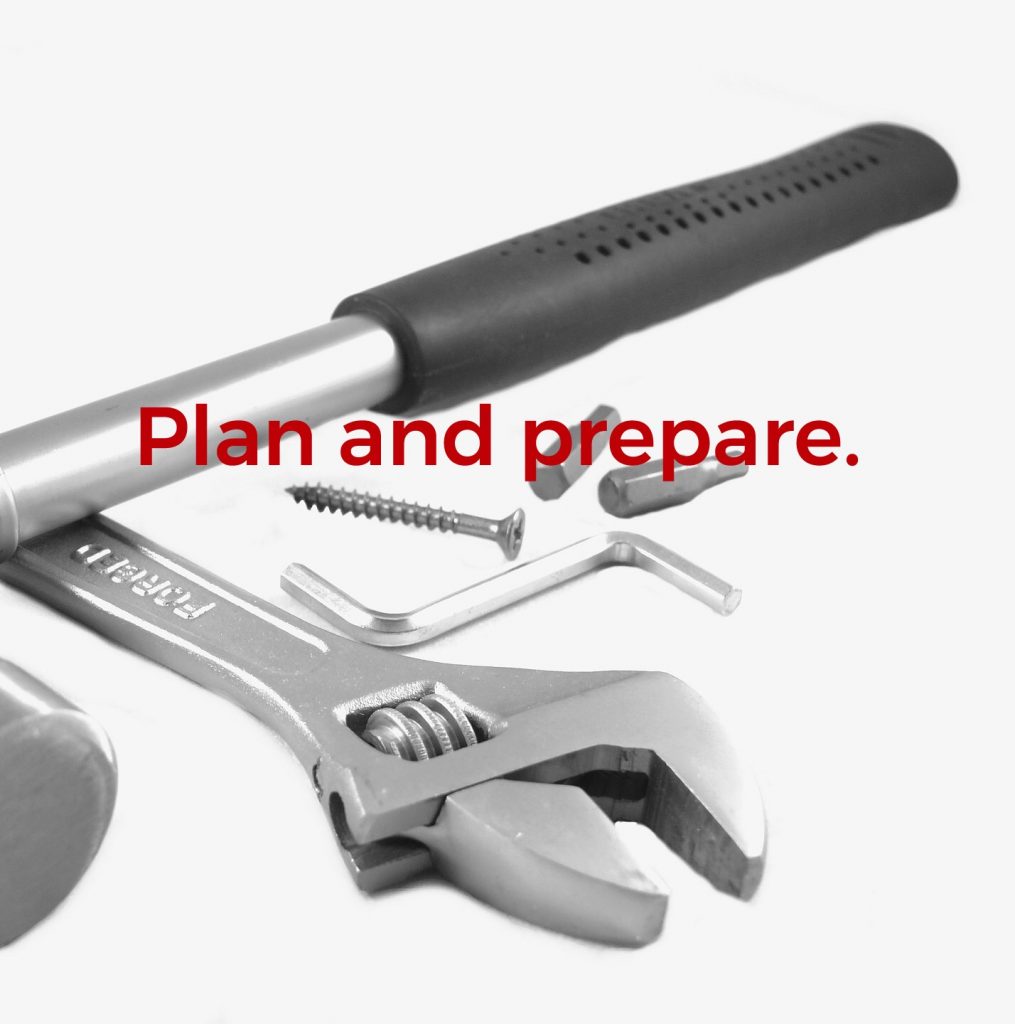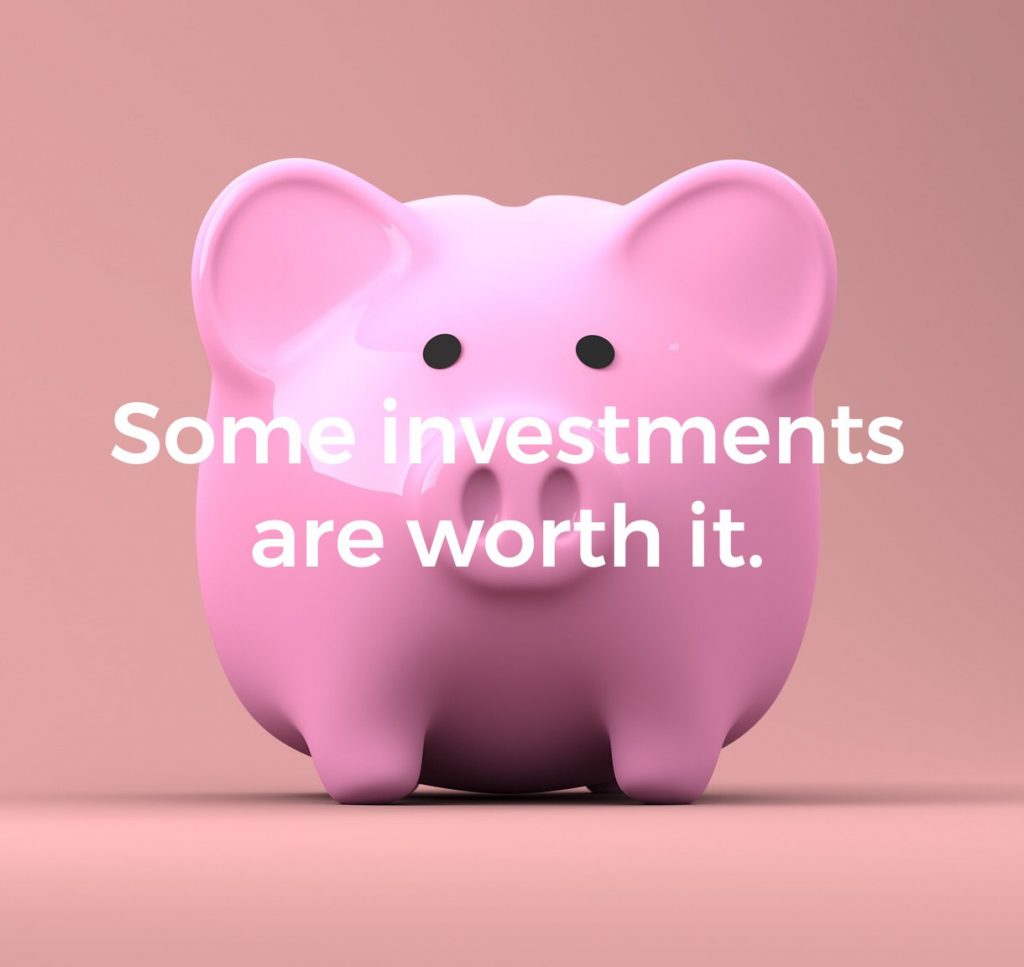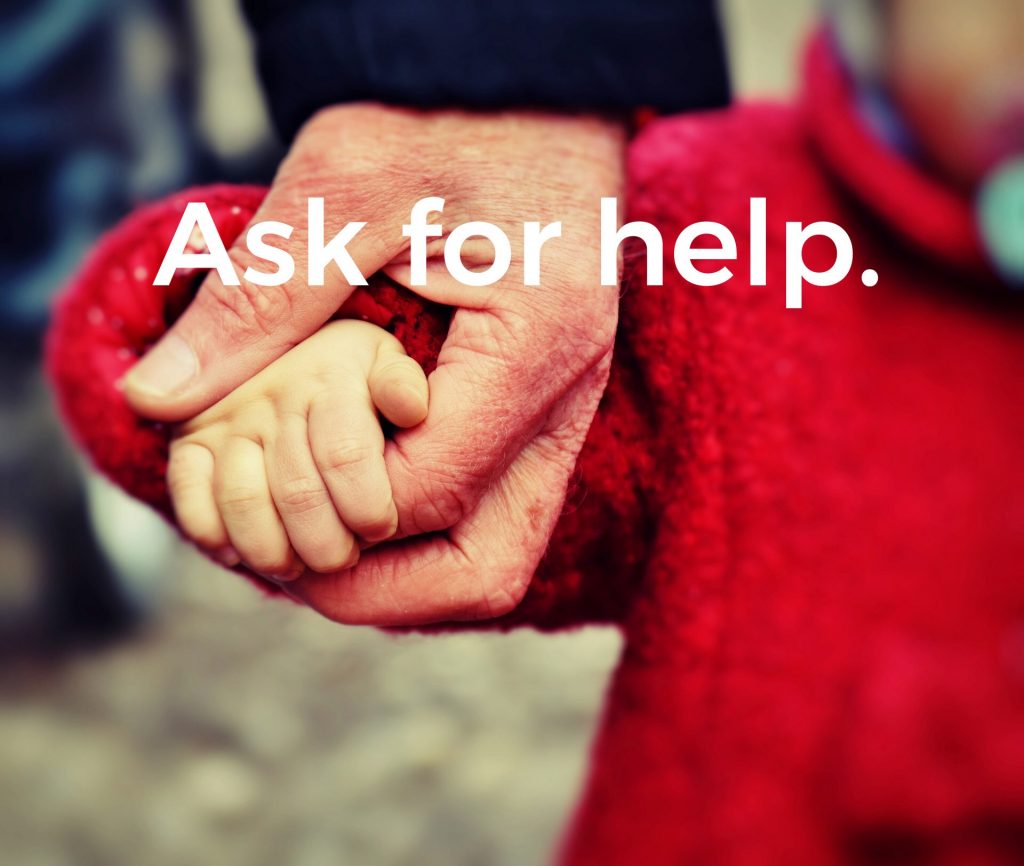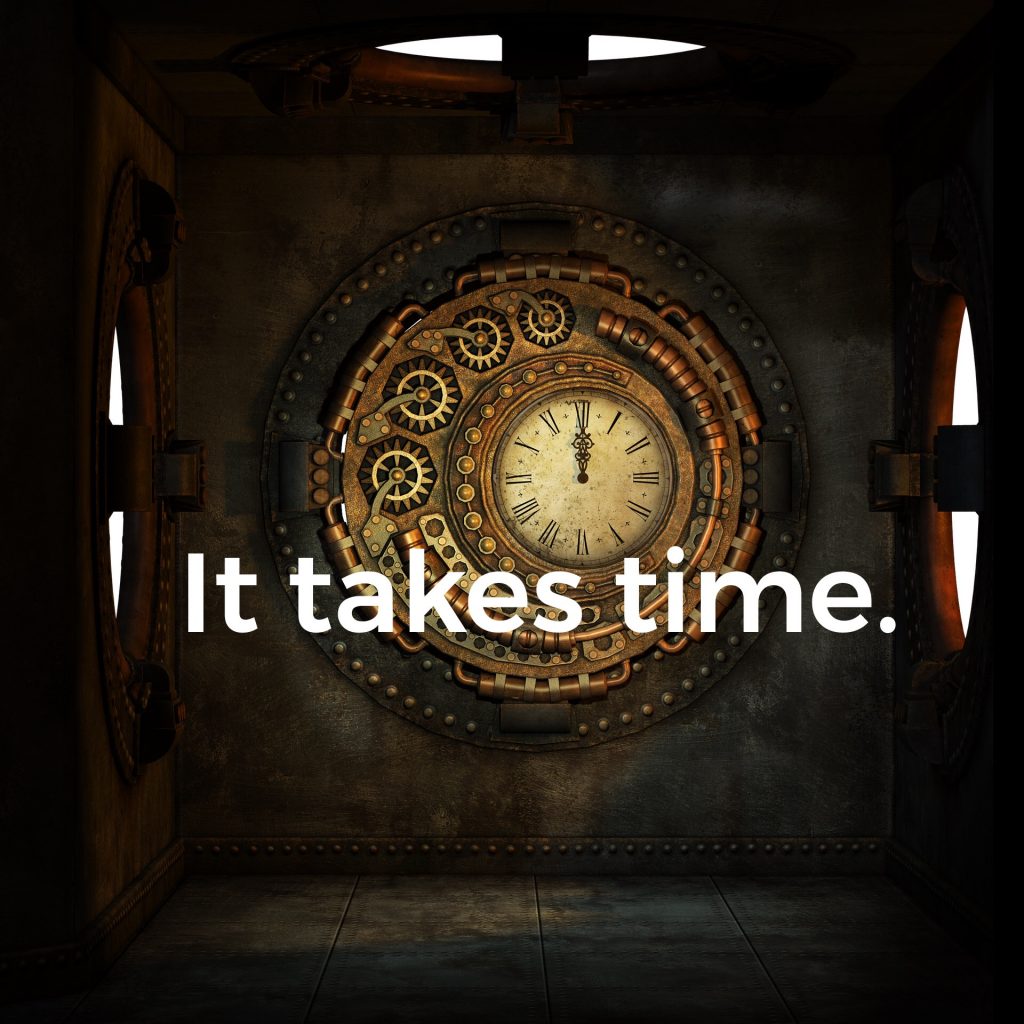Changing behaviours – what I learned (part 2)
Part 2: How to make changes
In the first part of this blog I talked about setting myself a challenge of using my bike every day for a week, in order to change my ‘transport habits’, and what I learned from that experiment. Now I’m going to explore what makes changing behaviour hard, and offer some tips that might help.
Why is it difficult to change behaviours?
Negative motivation: Take a moment to consider your own process when you plan to change something. Do you focus on the benefits? Or are there lots of ‘shoulds’ and ‘oughts’ that come into play? Usually when I think about doing things differently, it goes something like “I shouldn’t be doing X” or “I need to be better at Y” and there’s quite a punitive quality about it.

As an article by David DiSalvo says “Negative emotion may trigger us to think about everything we’re not doing, or feel like we’re doing wrong, but it’s horrible fuel for making changes that stick.” We need to find positive reasons to want to make the change rather than chasing ourselves with a big stick.
Oversized targets: Another problem is that we often set our aims unrealistically high or have huge but vague targets. The classic one is gym membership – forking out hundreds of pounds in an effort to shame or punish ourselves into getting more exercise or getting fit. 3 spinning classes in the first week after New Year, yeah! we feel great with how well we’re doing – then something happens that interrupts that momentum, we have a week off and then beat ourselves up for failing at ‘change’.
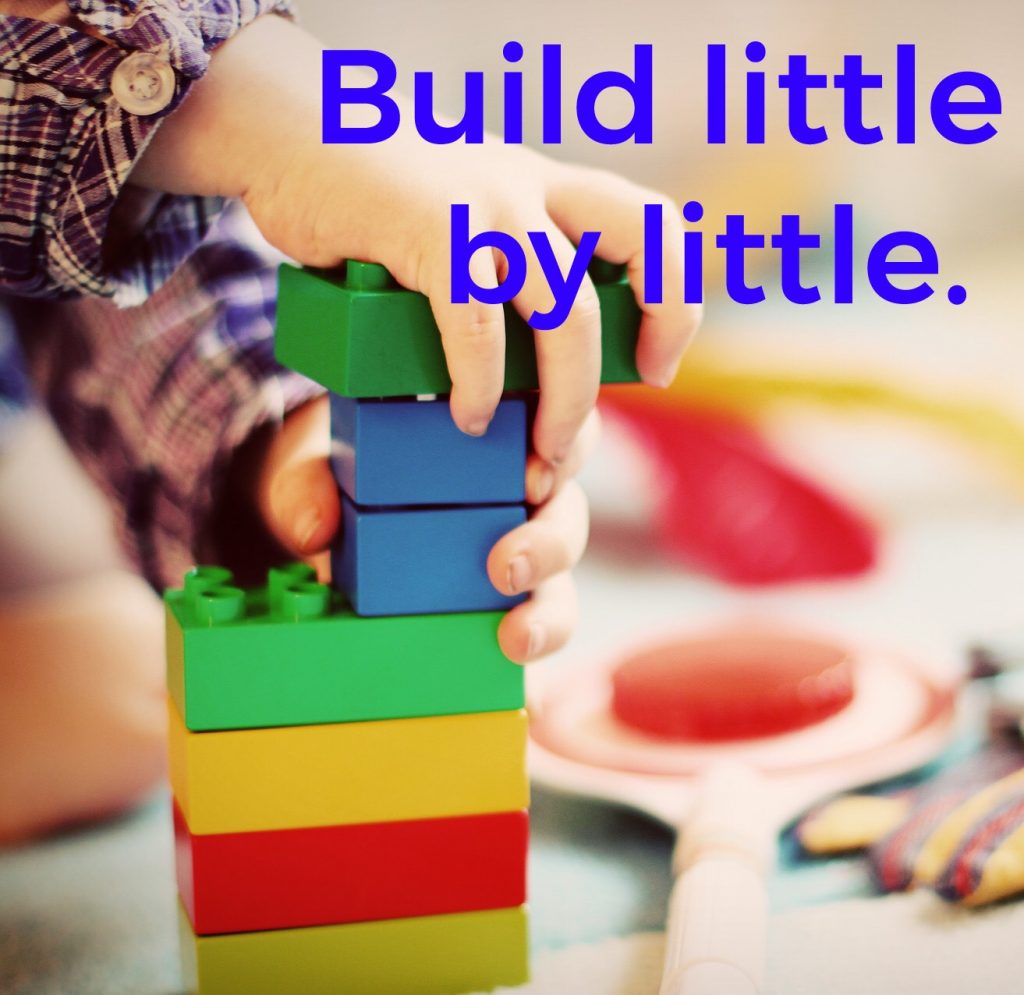
It becomes an all-or-nothing belief, and as ‘all’ is an unfeasibly large goal we pretty soon end up with nothing. The smaller the steps, the better, when it comes to making changes, because even small steps move you forward; there’s a better chance of small changes sticking; and ‘mony a mickle maks a muckle’ (translation for non-Scots: lots of little things add up to big things).

Life challenges: Let’s not ignore that there may be additional factors which we have no control over. Changing to a healthier lifestyle when you’re a lone parent struggling to make ends meet and are trying to hold down 3 jobs, or when you grew up in poverty and neglect, or when you’ve survived civil war and have arrived in the UK and are fighting for your right to stay…….the odds are stacked against you. The impact of the environment you’re in is sometimes ignored in the individual-centred world of psychotherapy. It’s important not to discount the role that society and inequality play in our having control over our lives.
Habits: We tend to think we can ‘just make’ a change – mind over matter, perhaps – rather than thinking about the factors that support that change or prevent it. Remember what I said in the first part of this blog about my biggest learning being to make it easy? We are creatures of routine and habit, so no matter how firm our intentions are, once we slip into the daily routine it’s difficult to remember those intentions.

This is where planning and using reminders or alarms come in. Telling people what we’re doing and asking for their support can help too – rather than trying to do it all alone in the hope that we can then suddenly explode like a new-born butterfly in all our radiant changedness.
Stages of change
Prochaska and DiClemente introduced the Stages of Change Model in the 1970s to help understanding of what happens during the process of change. The model splits change into six stages:
- Stage 1: Precontemplation. At this point I am in denial about there being a problem, or about believing that I have control over my behaviour; “this is just how things are”. Sometimes people come to therapy at this point because they know something needs to change but they’re not sure what.
- Stage 2: Contemplation. I’m aware that there are benefits to making a change – but I’m also aware of the costs, so I have conflicted emotions about changing. In order to gain the benefits, be they physical or emotional, something will need to be given up, and this in itself can mean that this stage lasts for a long time.
- Stage 3: Preparation. I’m experimenting with doing things differently in small ways and gathering information about what I need in order to make the change. For change to be successful, this stage needs to be given time in order to find or build supports and decide on specific goals before throwing yourself into action.
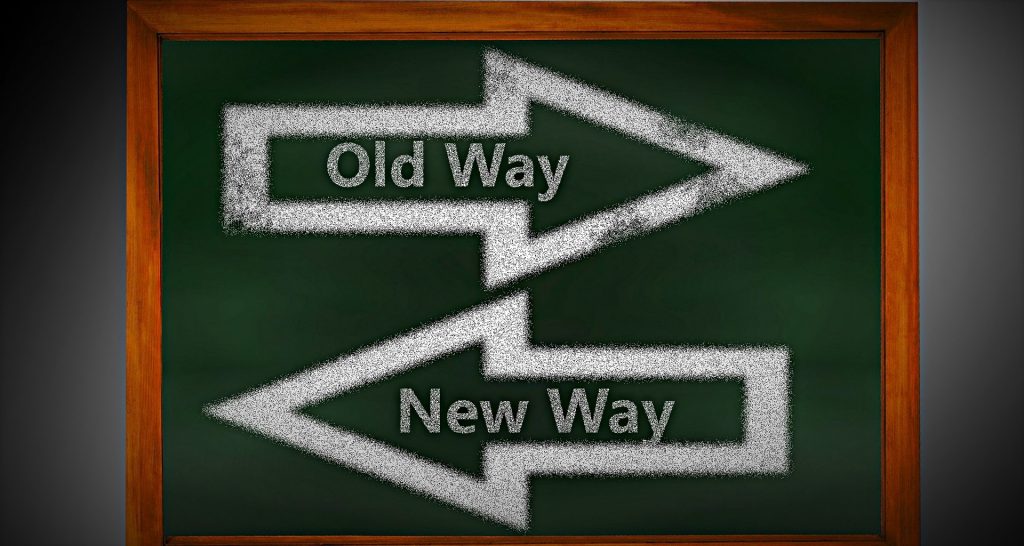
- Stage 4: Action. I start direct action towards my goal. But did I spend enough time contemplating the change and preparing for it? Any positive steps taken at this point need to be reinforced by congratulation and reward to maintain the movement towards lasting change.
- Stage 5: Maintenance. Having made changes, I’m avoiding reverting to former patterns of behaviour and continuing to reward myself for keeping up new ones. This stage takes time, and will be interwoven with…..
- Stage 6: Relapse. Inevitably, I’m only human, and I relapse into previous behaviour. I’m pissed off and disappointed with myself. The key with relapse is to accept that it is inevitable and to use it to learn for next time – what triggered the relapse? What might help manage this trigger in future? This is a good opportunity to return to the preparation stage, especially if this was rushed through.
Is now the right time to make a change?
I’m very aware that it was relatively easy for me to try something different when I did; my circumstances at that time meant that I had some time to play around with – and so the last thing I want is for this to sound like I’m implying that changing behaviour is easy, or even that I’m particularly good at it! Context made it possible.
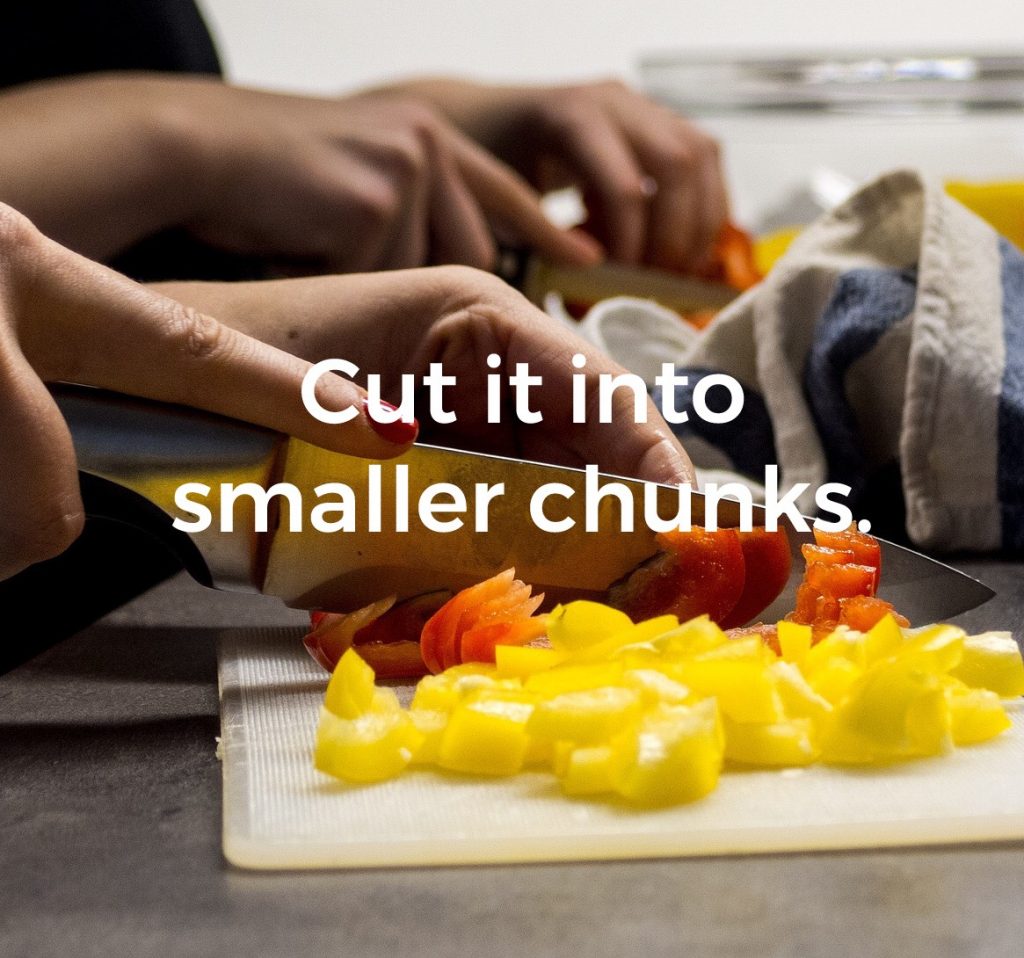
So it’s important to notice what may be going on around you that makes changing behaviour difficult – environment, friends, a challenging personal situation, poverty. That’s part of the precontemplation and contemplation stages.
But it’s also important to be aware that there is never going to be a ‘perfect’ time to change behaviour. Perhaps you can look at the reality of the behavioural change that you want to make and see if it can be broken down into smaller, more achievable – more affordable, simpler, whatever – chunks. Preparation. Then do it – and remember that relapse is part of the deal.
Ten tips to help you make and maintain a behavioural change
1. Set small and specific goals
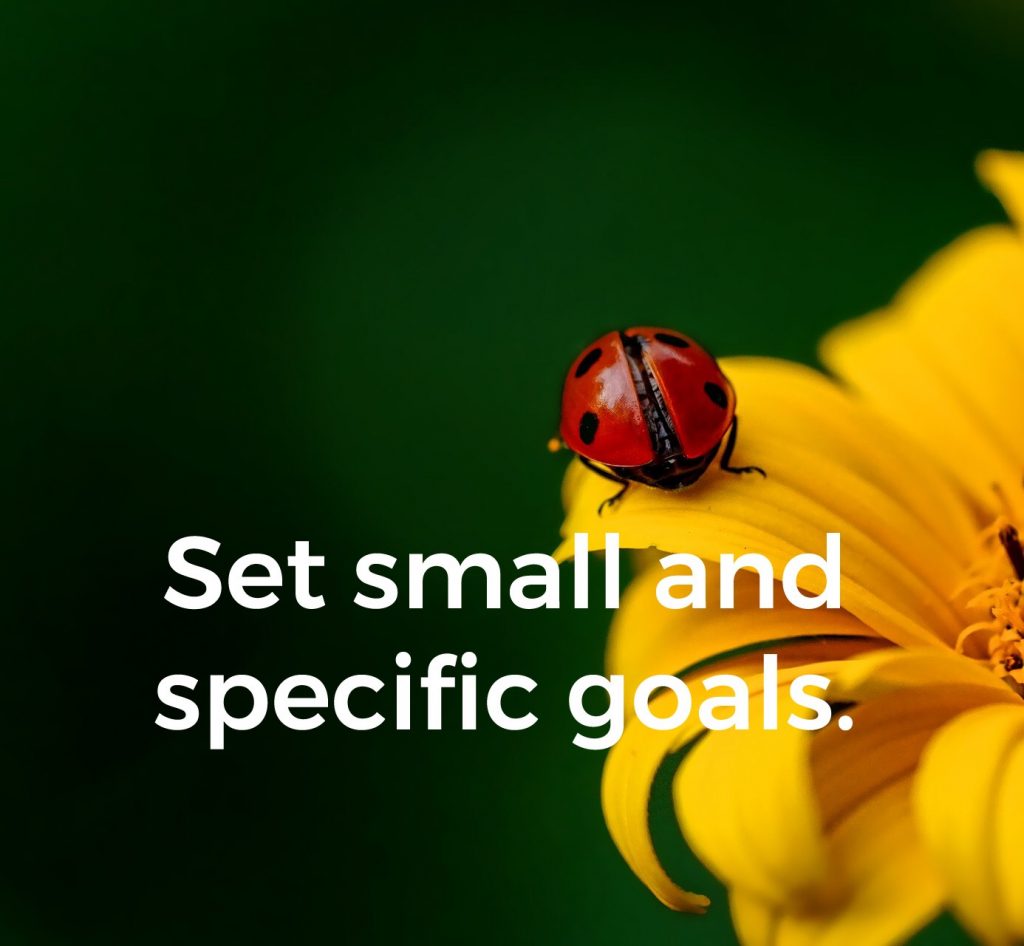
Notice I say SMALL and specific. What’s small for one person may not be for another. My goal of using my bike every day was achievable for me that week because of circumstances. “I’m going to get more exercise” isn’t specific…… but rather than “I’m going to walk to and from work every day” you could start with “I’m going to get off the bus 5 minutes early and walk the rest of the way 3 times a week”.
2. Accept that you will relapse
Hold this in mind right at the start.
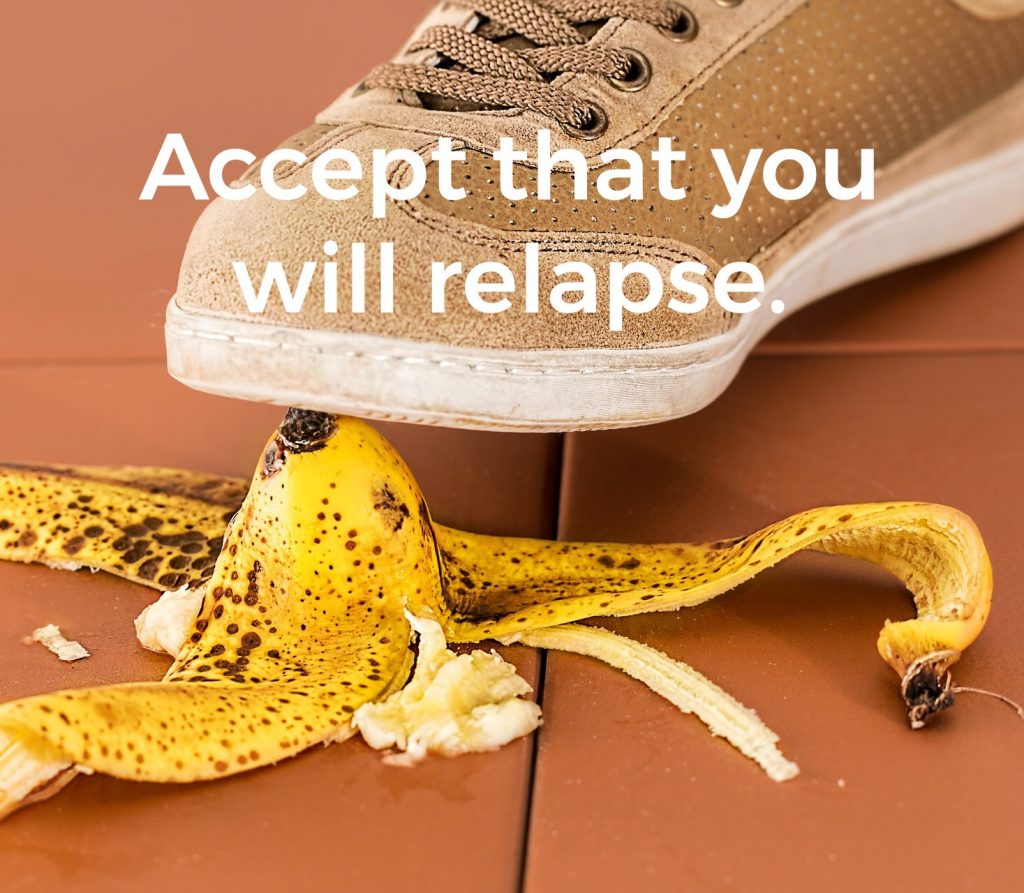
Being aware that, at some point, you will have a relapse in behaviour will enable you to be more forgiving of yourself when this happens, instead of thinking “I’m useless at this, I knew I’d never be able to do it”. Relapses help you learn what you could do differently next time.
3. Set times to review
Do you need to change the goals?

Make an appointment with yourself at the end of each week to check how you’ve done, and to notice what has been difficult. Maybe your goal was too big and you need to scale it down; succeeding with a small goal is more motivating than failing with a big one. You can always raise the bar later.
4. Consider how you’ll reward yourself

Positive motivation for change is more successful than beating yourself up for failure, as mentioned earlier. Think of a reward that you’ll enjoy but that won’t conflict with your goals (i.e. don’t give yourself a junk food reward for eating healthily!) – buy yourself the book you wanted, go and see a film.
Make rewards part of your plan.
5. Plan and prepare
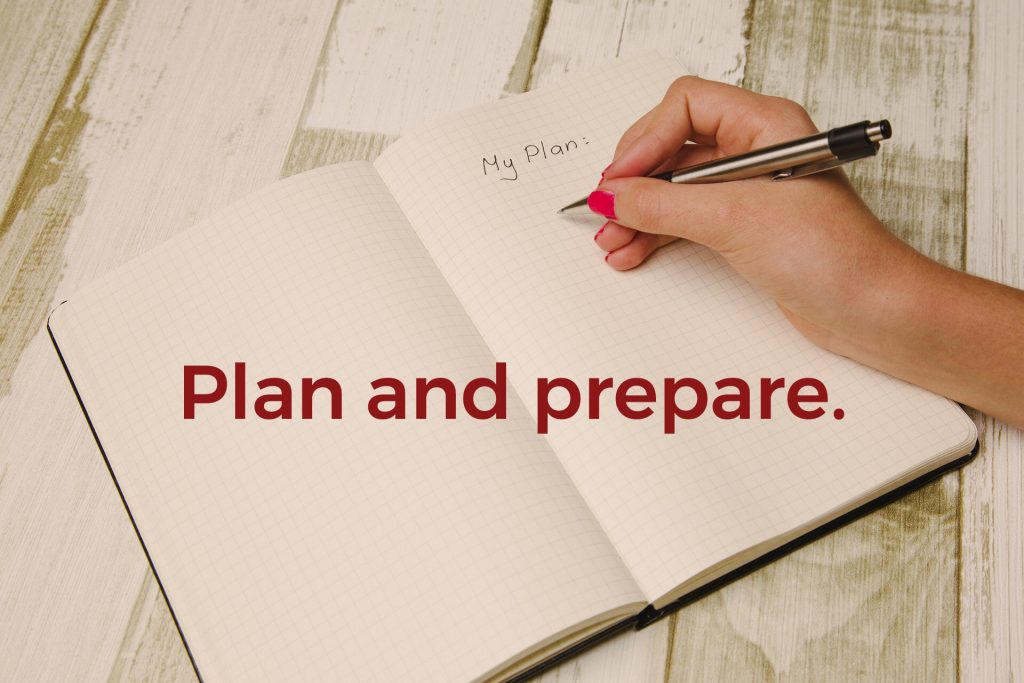
You might be seized with enthusiasm once you’ve decided to make a change, but planning and preparation give you the best opportunity to succeed, just like they do with DIY tasks!
What resources do you need to make this change? Who or what might support you? And what might get in your way – be obstacles or triggers? Is there anyone you need to avoid?
Take time to think about where you can look for help.
6. Accept that changing behaviour is hard!
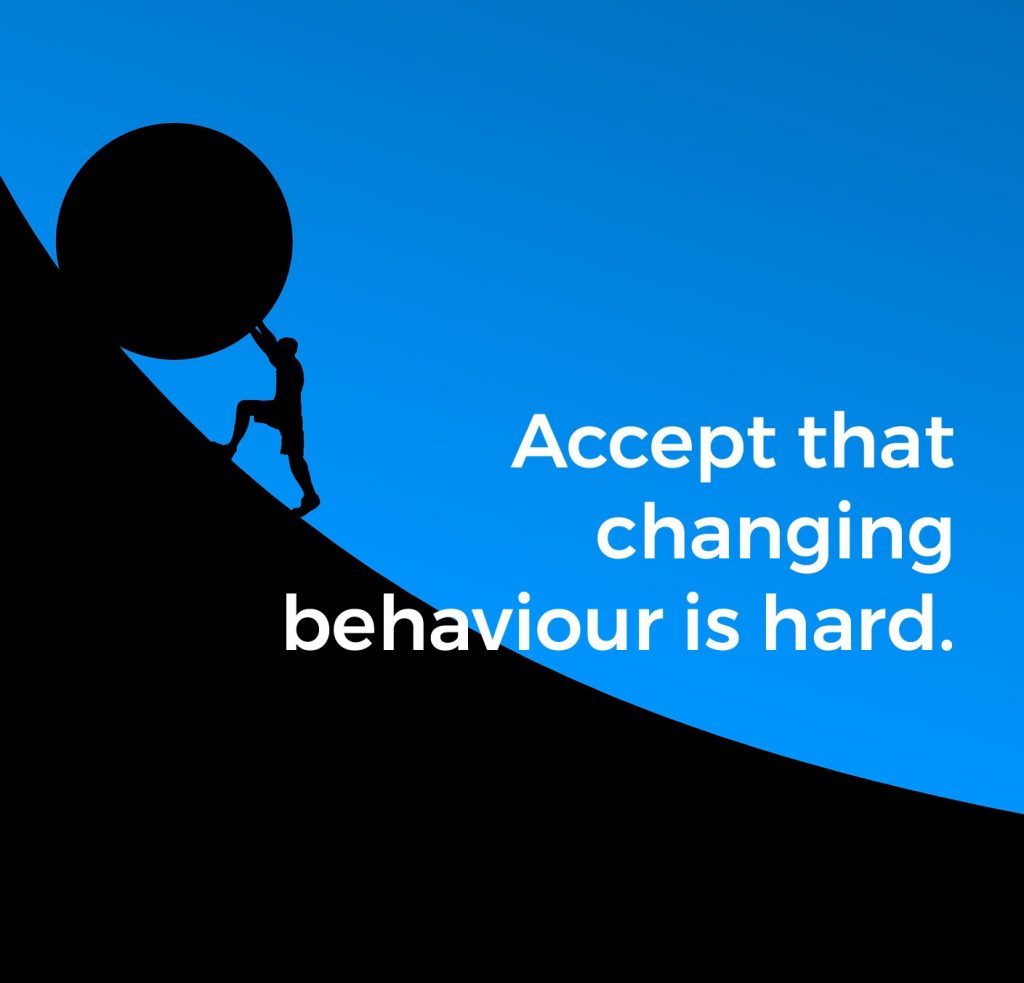
Most of us live by routines and habits – it’s normal and it makes life work because you don’t have to think about everything you do. But it means that we become wired to do things in a particular way, and that takes time to change.
When you notice what hasn’t gone well, try and catch yourself and reflect on a positive – rather than saying “I had an unhealthy snack two days this week” switch it to “I managed five days this week where I didn’t have an unhealthy snack”.
7. Track and review your progress
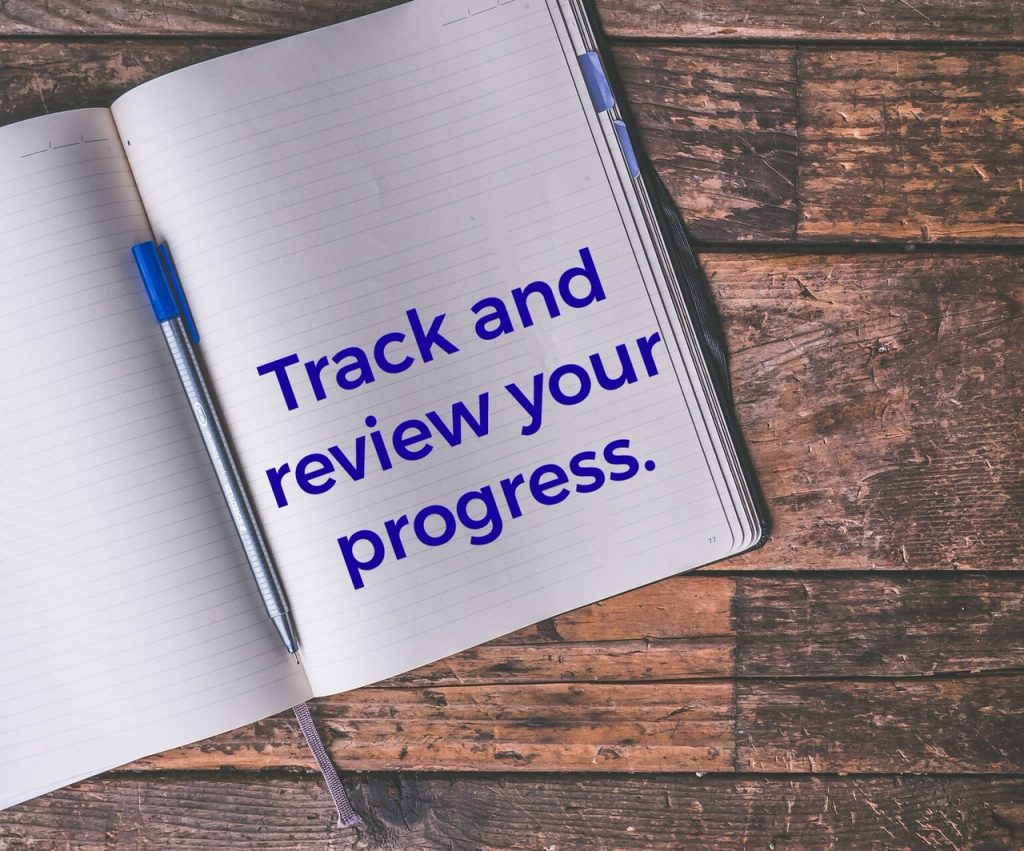
Keep a journal, or a food diary, or use an app on your phone. It can help to express your frustrations, and keeping track of the positives will help you recover when things aren’t going so well.
8. Ask for support
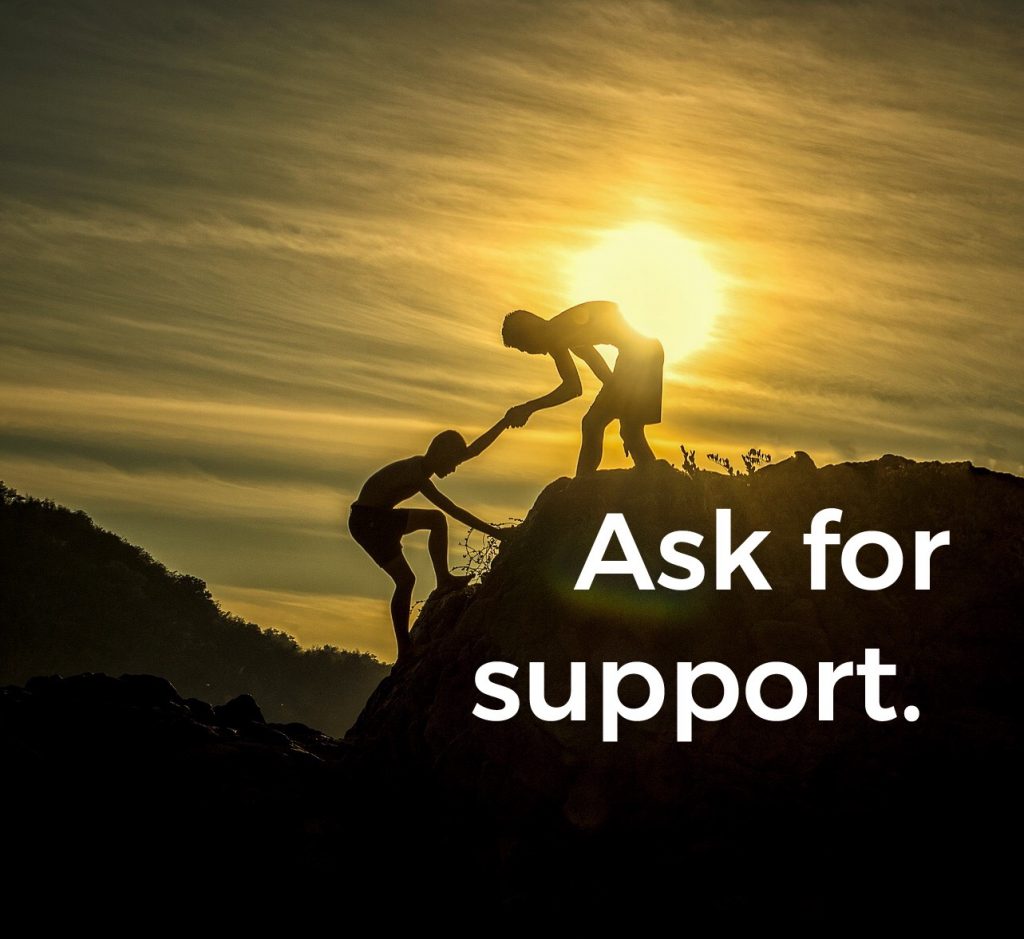
Remember you don’t have to do this alone!
Perhaps there’s someone else who might be interested in working towards the same goal and you could buddy up together. Or someone you know who might have skills or advice to offer. You might get in touch with a therapist if you need help understanding why you’re finding it difficult to make a change.
At the very least, sharing what you’re working towards means that your friend or partner can help, by encouraging you and giving you feedback when things are going well.
9. Reward yourself. ALWAYS.

DON’T SKIP THE REWARDS!
If you’ve done well, take a moment to pat yourself on the back and acknowledge the achievement, even if it feels uncomfortable.
10. Be compassionate with yourself
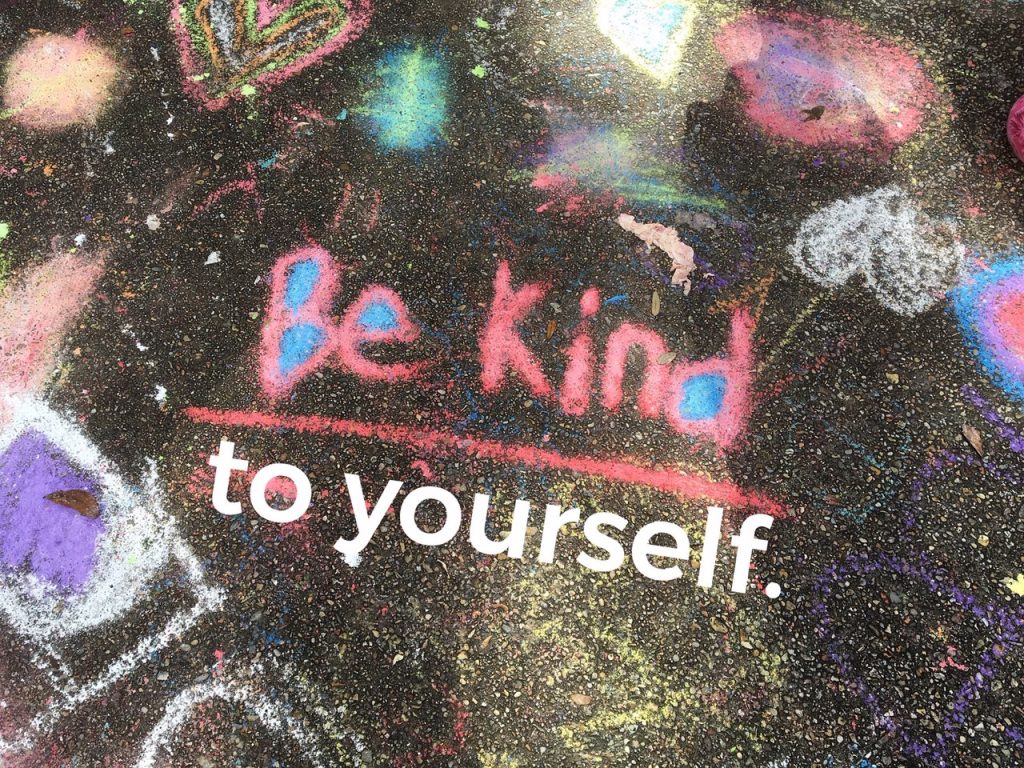
Don’t make it harder than it already is. Think of how you might support someone else who is trying to change their behaviour.
Can you offer that support to yourself?
What am I doing differently since ‘The Bike Challenge’?
Today, as I write this blog, is the first day I’ve got clients in the new room that I’ve rented in Edinburgh, and I’m cycling in. I chose this room over another because of its proximity to good cycle routes avoiding busy roads – even though it’s further from a handy bus stop (Make It easy). I know I’ll be tired when I leave to come home, but I’m hoping I’ll appreciate a different experience from my usual bus ride (Don’t compare apples and pears). It’s raining right now but I’ve got a change of clothing and I’ve packed some calories to make sure I’ve got sufficient energy both for my clients and for the cycle home. And I’ve looked out the bike lights – which I may need to elastic-band to my handlebars (Don’t do this at home, kids) in case it’s dark when I return (Plan and prepare).
(NB: I wrote this over a month ago. As I publish it today, I can look back at a month’s worth of Wednesday cycles where I’ve enjoyed the processing time on the ride home after seeing clients.)
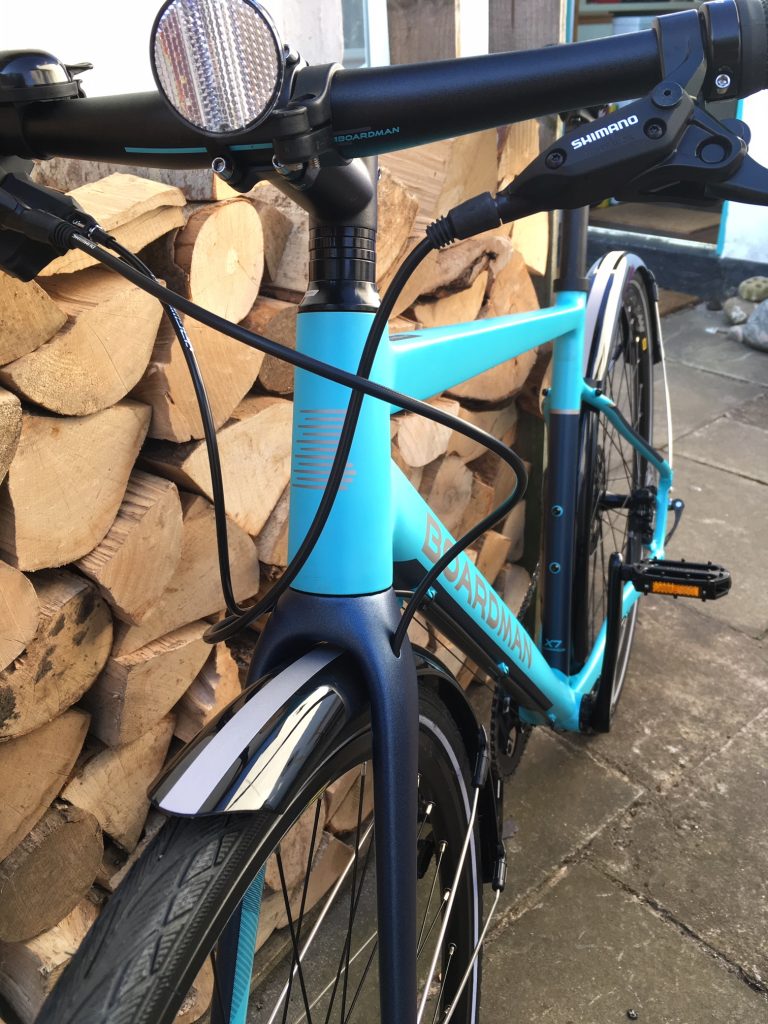
I’m not using my bike every day. I need more practice to really embed it as part of my routine and I’m mindful that my attitude may change when winter weather arrives. But I’m incorporating cycling more into my professional decisions – like the room hire, or arranging meetings – and I’m now using it as a mode of transport more than the bus, which is a definite shift. Every time I use my bike to run a quick errand it gives me a little lift. So I’m pretty happy; and I’m going to reward myself with a new set of pedals, because those pesky toe clips still don’t fit properly!
I’ve included some links to other resources below. If there’s a change you’re wanting to make in your behaviour, and you’re finding it difficult to get started, please get in touch with me. There are many factors that contribute to the habits that we find ourselves in, and you may find it useful to explore what these factors may be, for you, in therapy.



